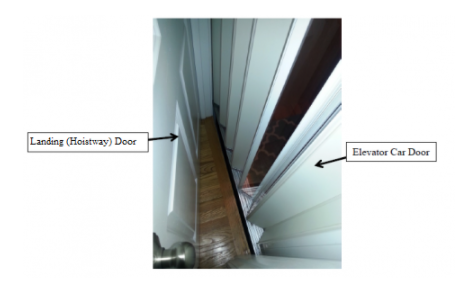Home Elevators Endanger Children, Feds Seek Recall

In an unusual action, federal safety regulators are suing a home elevator manufacturer, seeking to force a recall of elevators that they say can trap and kill or maim children.
What’s unusual about that? Well, for starters, the U.S. Consumer Product Safety Commission (CPSC) doesn’t normally have to sue companies to force them to recall dangerous products. Generally, recalls are negotiated between the CPSC and the company. Companies may resist initially but most eventually agree to conduct a “voluntary” recall.
But in this case, ThyssenKrupp Access has been resisting the CPSC’s efforts since at least 2019, when a Washington Post investigation found numerous incidents of death and serious injuries to children who became caught in a space between the two sets of doors common on residential elevators.
“These injuries and deaths are ghastly,” said Acting CPSC Chairman Robert Adler. “The gaps in residential elevators are truly a hidden hazard for homeowners, and for anyone who is visiting or renting a home with an elevator.”
Some of the cases involved children who were injured or killed while visiting their grandparents. Others happened in rental vacation homes.
Not our problem, says manufacturer
ThyssenKrupp Access, part of a German conglomerate, has argued that it is no longer making residential elevators, that the accidents were the result of “installation errors” and that it has been working individually with consumers to fix elevators that have already been installed.
The company also says that, on its own initiative, it has been conducting a “robust communications outreach program” to reach homeowners and offering assistance in modifyine the elevators to close the gap.
“ThyssenKrupp Access Corp. created Facebook and Twitter pages for the program and initiated paid media outreach to increase consumer awareness of the home elevator safety program and participation to correct installations,” the company said in a news release.
But the CPSC contends that a full-scale recall, with the publicity that attends such actions, is needed to alert parents and other consumers to the dangers posed by residential elevators.
Memos from 1943
Industry groups often argue that they are better able to handle dangerous situations arising from their products than government agencies. But the Post investigation found evidence that, as long ago as 1943, corporate memos revealed that executives had been aware of the dangers posed by the elevators.
Safety advocates tried to have building codes amended to outlaw gaps between the doors but were turned back by industry efforts. Finally, in 2017, codes were changed but the modifications applied only to new installations, leaving thousands of earlier elevators still in use.
The CPSC and other agencies did little about the problem until the Post investigation finally raised public awareness.
The Commission voted 3-1 this week to approve the lawsuit, which asks that ThyssenKrupp be ordered to notify the public of the defect and offer consumers a remedy that includes a free inspection, and if necessary, installation of safety devices, such as space guards, at no cost to consumers.
CPSC urges consumers to disable or block children’s access to the thyssenkrupp residential elevators to prevent a potential deadly incident.
